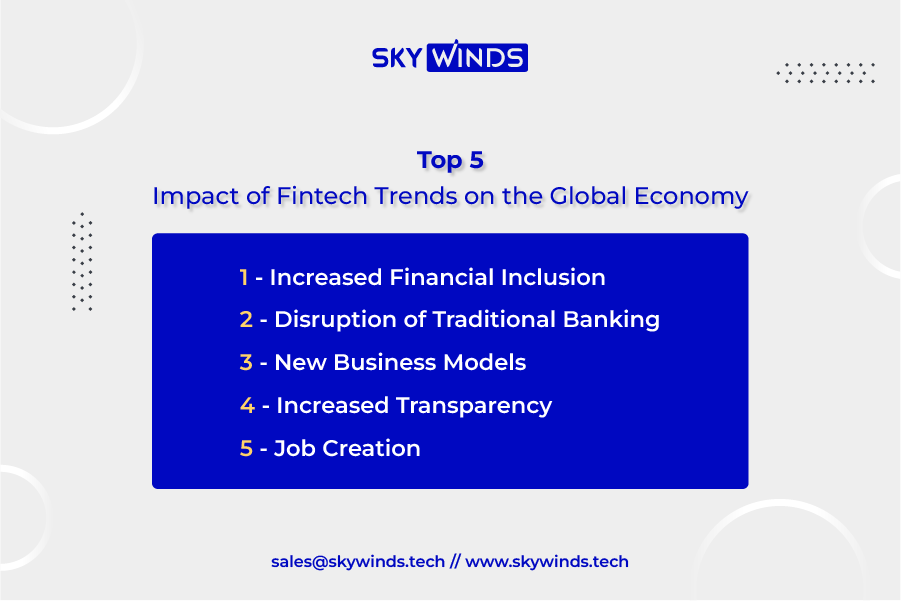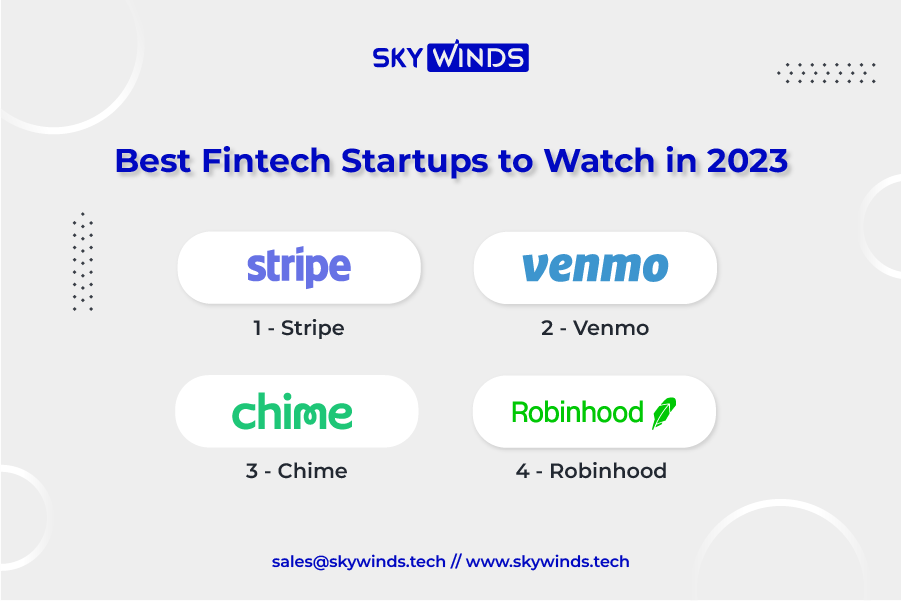
Fintech With innovative solutions and disruptive advancements, Fintech has revolutionized transacting, investing, and managing our finances. In fact, a study conducted by Allied Market Research projects that the global mobile banking market is set to reach an impressive valuation of approximately US$1824.7 million by 2026.
This staggering statistic underscores the significant impact fintech has on the global economy, propelling us towards a future where financial services are more accessible, efficient, and interconnected than ever before.
So, let’s explore the far-reaching implications of Fintech together through this article…
What is Fintech?
Fintech, a short form of financial technology, refers to integrating technology into financial services to deliver innovative solutions, streamline processes, and enhance the overall financial experience.
It encompasses various technological advancements, including mobile banking, digital payments, blockchain, robo-advisors, peer-to-peer lending, and more.
Through the utilization of these advancements, the fintech industry has experienced an extraordinary surge in growth. In fact, from 2013 to 2023, fintech bank assets witnessed a remarkable increase of 105%, surpassing the growth rate of traditional bank assets, which stood at 75%.
This exponential fintech industry growth has captivated the interest of startups, established financial institutions, and investors worldwide, recognizing the immense potential of Fintech to reshape the financial landscape.
Impact of Fintech Trends on the Global Economy

Below given is the curated list of the significant changes brought by the fintech industry on the global economy-
1. Increased Financial Inclusion
Fintech has made financial services more accessible to a larger population, especially in developing countries with weak traditional banking infrastructure. The impact is evident as an impressive 94% of mobile banking users now engage with digital banking services at least once a month.
By leveraging technology, Fintech has overcome geographical barriers, allowing individuals to conveniently access financial tools and services through mobile devices.
2. Disruption of Traditional Banking
Fintech startups have disrupted traditional banking by offering innovative services like peer-to-peer lending, online banking, and robo-advising. These services provide cost-efficient solutions and superior user experiences, aligning with customers’ ever-evolving expectations.
In fact, 66% of customers anticipate financial institutions digitizing various aspects, including customer interaction, sales processes, and service models, while reducing reliance on traditional brick-and-mortar infrastructure by 2025.
This shift in consumer mindset highlights the growing demand for seamless digital experiences and the convenience of accessing financial services anytime, anywhere.
3. New Business Models
Fintech has revolutionized existing business models and paved the way for new paradigms. In particular, startups specializing in wealth management are projected to experience an impressive Compound Annual Growth Rate (CAGR) of 16.8% from 2020 to 2030, showcasing the highest growth rate among all wealth-management providers.
The rapid growth of fintech-driven wealth management startups signifies a paradigm shift in how individuals approach and engage with their financial well-being, reflecting the increasing preference for tech-enabled solutions in pursuing financial prosperity.
4. Increased Transparency
Blockchain, a technology often used in Fintech, has increased transparency and security in financial transactions. Implementing this technology in Fintech has significantly mitigated the risk of fraud and fostered a heightened level of trust in financial transactions.
This enhanced security and transparency have a profound impact on stimulating economic activity. In fact, the fintech blockchain market is projected to witness substantial growth, with a valuation anticipated to reach $36.04 billion by the end of 2028.
5. Job Creation
With its transformative capabilities, Fintech holds immense job creation potential in the technology and financial services sectors. A study reveals that India’s top 125 fintech companies employ approximately 80,000 individuals directly. Moreover, the ripple effect of their activities generates employment opportunities indirectly, supporting an additional 2.5 times that number. This demonstrates the significant contribution of Fintech in expanding job markets and driving economic growth.
How Fintech is Revolutionising the Financial Industry?
As fintech app development companies continuously evolve, they create new opportunities and transform the financial landscape remarkably. One area of significant growth is in the realm of digital currencies and decentralized finance (DeFi).
Cryptocurrencies like Bitcoin and Ethereum, powered by blockchain technology, have gained widespread adoption and are challenging traditional notions of money and financial systems.
Meanwhile, DeFi platforms are revolutionizing lending, borrowing, and investing by eliminating intermediaries and enabling direct peer-to-peer transactions. Hence, this emerging sector offers the potential for greater financial inclusivity, borderless transactions, and innovative financial products.
Fintech app development is also pushing the boundaries of financial services through open banking initiatives, which allow customers to securely share their banking data with third-party providers to access personalized financial solutions.
With the advent of open banking, we can expect more tailored and convenient services, including budgeting apps, savings tools, and personalized recommendations.
Additionally, artificial intelligence and machine learning algorithms drive advancements in risk assessment, fraud detection, and customer service, enabling more accurate decision-making and enhanced customer experiences.
The potential of fintech technology in e-commerce seems limitless, and as technology continues to evolve, we can anticipate further disruptions and innovations that will reshape the financial industry in ways we may not yet fully comprehend.
Best Fintech Startups to Watch in 2023

Below given is a list of the fintech startups in 2023, driving innovation in the field of financial technology companies–
1. Stripe
Stripe, a leading online payment processor, stands out in the fintech industry. With a massive user base of almost 2 million customers worldwide and 1.14 million websites using its services, Stripe is trusted by major businesses like Sony, Amazon, and Target.
Founded in 2010 by John and Patrick Collison, Stripe has secured funding of $23 billion and enjoys the backing of credible investors like Sequoia Capital. Moreover, it offers the advantage of easy integration with popular e-commerce platforms like Shopify through plugin extensions, providing users with flexible and efficient payment solutions.
2. Venmo
Venmo, the fastest-growing fintech company in 2023, has amassed a substantial user base by offering hassle-free financial transactions among individuals and enabling businesses to accept payments.
With its stronghold in the mobile payment app market, Venmo secures its position as one of the top 10 fintech companies. Despite being available exclusively in the US, Venmo boasted over 15.3 million users in 2022, thanks to its fundamental value proposition of providing a cash-free method for sending and receiving money.
Notably, the fintech software development company “Venmo” signifies the potential for widespread fintech adoption, as users can make purchases using the Venmo Mastercard debit card or utilize in-store QR codes. Additionally, it provides price alerts for cryptocurrencies like Bitcoin and Ethereum, further expanding its offerings to meet evolving user needs.
3. Chime
Chime exemplifies how fintech payment companies can bridge the gap between customers and financial services. As a digital bank accessible through mobile devices, Chime allows individuals to set up fee-free automatic savings accounts.
With a user base exceeding 14.5 million accounts, Chime stands out as a prominent Financial Technology Company in the USA with an enticing value proposition. Founded in 2013 by Chris Britt and Ryan King, Chime emerged as a solution to provide accessible everyday banking services.
One of Chime’s notable features is the provision of up to $200 in credits for debit card purchases, all without incurring overdraft fees. Moreover, Chime enables the seamless receipt of paychecks through direct deposits, allowing instant access to funds.
Notably, Chime distinguishes itself by eliminating minimum balance requirements and monthly fees, making banking services more inclusive and user-friendly.
4. Robinhood
Robinhood, a prominent financial software development, has gained popularity for its innovative approach to investing. The investment brokerage application allows users to invest through their mobile devices or desktops without additional costs, making investment options more accessible by eliminating conventional brokerage fees.
Robinhood stands out with its minimalistic user interface and intuitive design, enabling users to easily invest in stocks, ETFs, and cryptocurrencies. The app also features a simple watch list function for tracking desired assets.
However, Robinhood has faced controversy, mainly related to security concerns. In a data breach in November 2021, the company experienced a customer data breach, resulting in the loss of names and email addresses of millions of customers.
A Bit About the Future of Fintech
The future of Fintech and its impact on traditional banking is characterized by its continuous evolution, driven by the following market trends-
1. The Fintech Solutions will Become More Personalized
Personalization is critical in deepening Gen Z’s financial services relationships, with 81% recognizing its value. Apps like Brigit exemplify this trend by analyzing spending habits and automatically providing overdraft protection.
Privacy and trust are crucial personalization aspects, driving its expansion within Fintech. Achieving hyper-personalization requires leveraging financial data APIs and artificial intelligence. Successful implementation enhances onboarding, engagement, and customer loyalty, ultimately driving increased revenue.
According to BCG, every $100 billion in assets held could yield up to $300 million in revenue growth through personalized customer interactions. Integrating data-driven personalization and advanced technology fuels Fintech’s ability to deliver tailored financial experiences.
2. The Fintech will Continue to Break the Money Taboo
As Fintech becomes increasingly prevalent, there is a noticeable shift in people’s comfort level when discussing their finances. Surprisingly, 63% of Americans now feel more at ease talking about financial matters with their friends, thanks to the impact of Fintech.
This fintech association for consumer empowerment represents a significant positive change, as historically, money-related discussions have been hindered by taboos. Topics like borrowing money from loved ones were often approached with caution or embarrassment.
However, with the advent of peer-to-peer lending apps like Lending Club and Prosper, these conversations have become more accessible and stigma-free.
This cultural transformation promotes transparency surrounding financial circumstances, paving the way for Fintech to evolve as a platform for individuals seeking non-judgmental advice and support.
Conclusion
The transformative potential of Fintech cannot be overstated. The power of fintech app development company is at the heart of this revolution, crafting innovative solutions to meet the evolving demands of consumers and businesses alike.
As we move forward into an increasingly digital world, we can only expect the influence of Fintech to expand further, with fintech app development companies leading the way in driving economic advancement and global financial prosperity.

